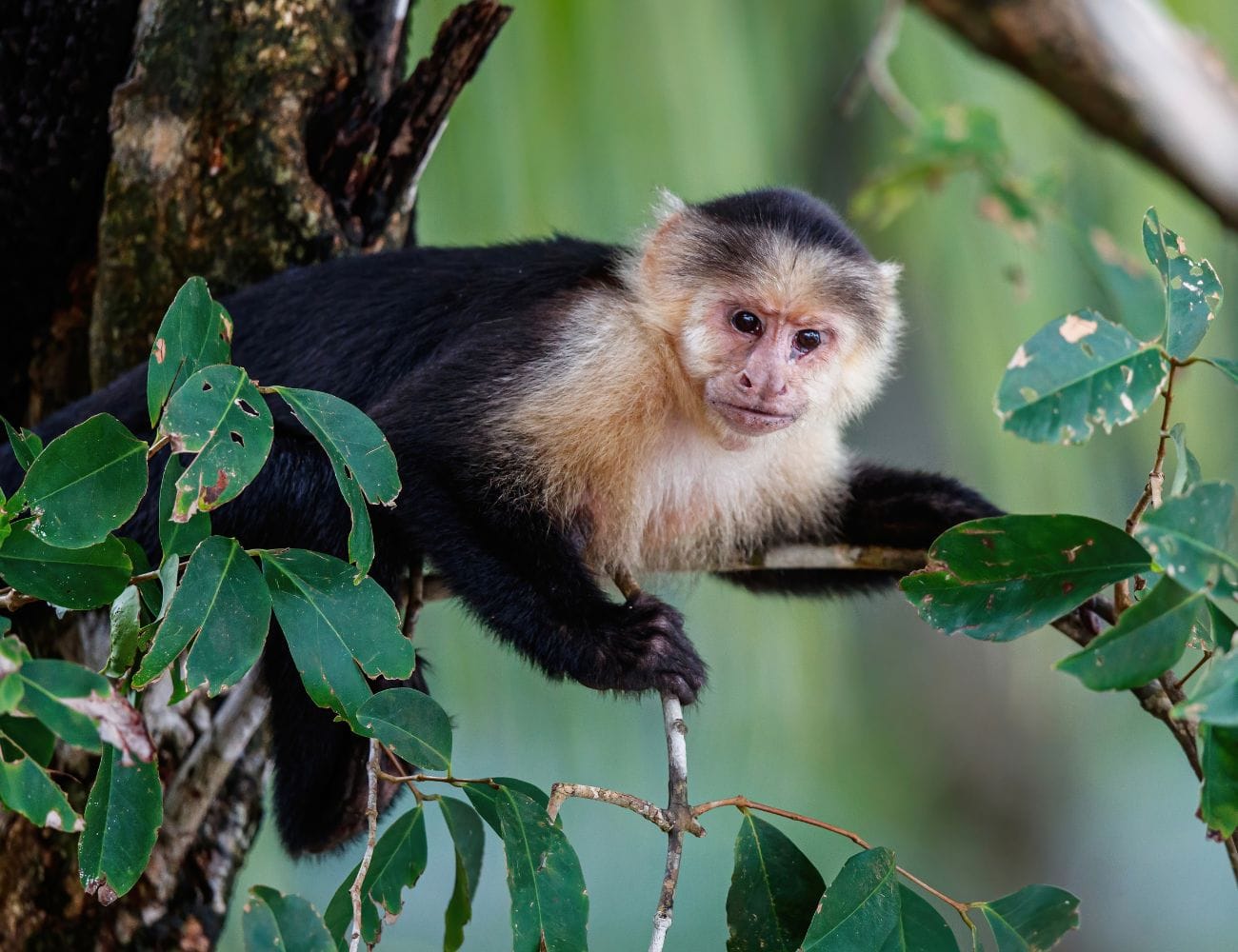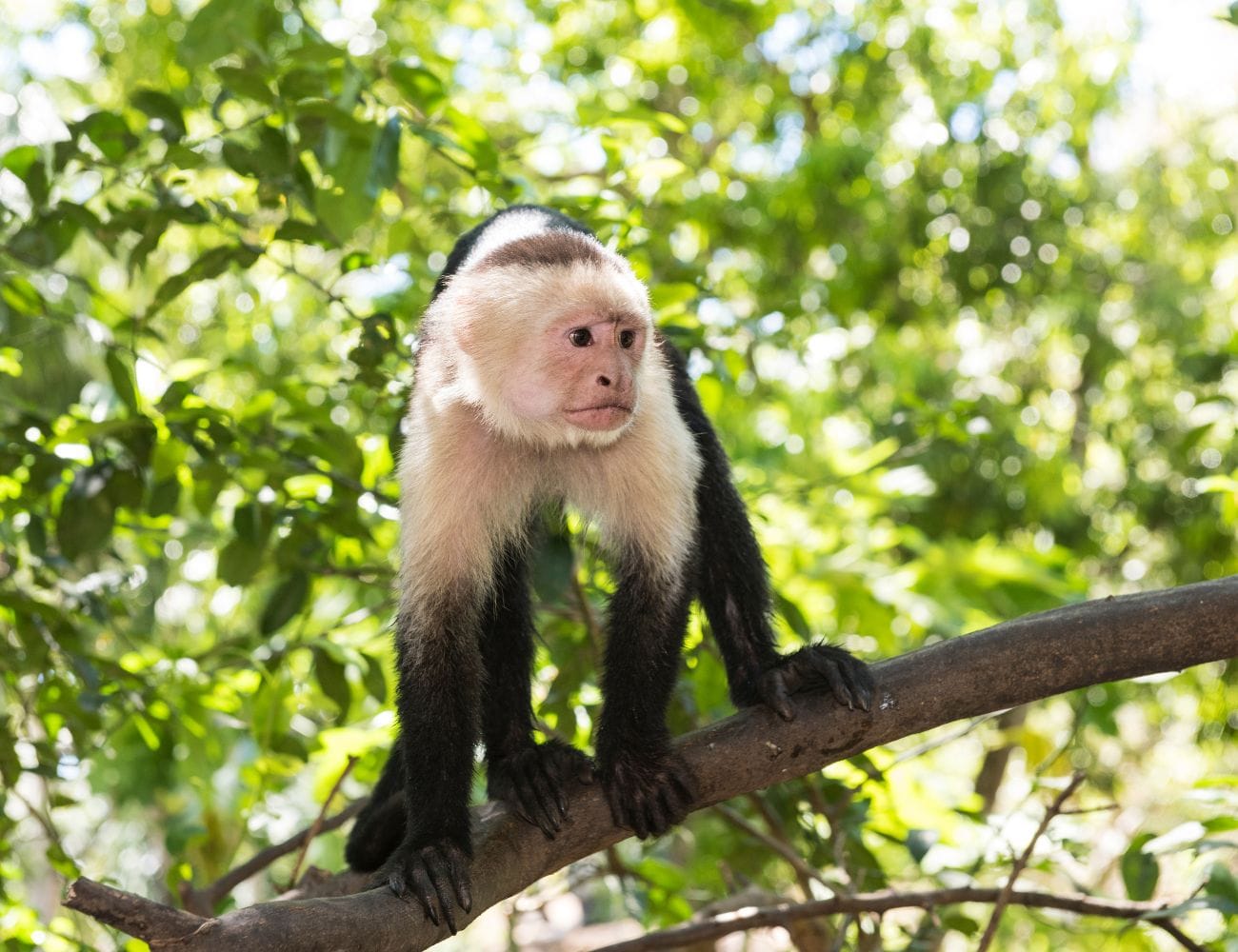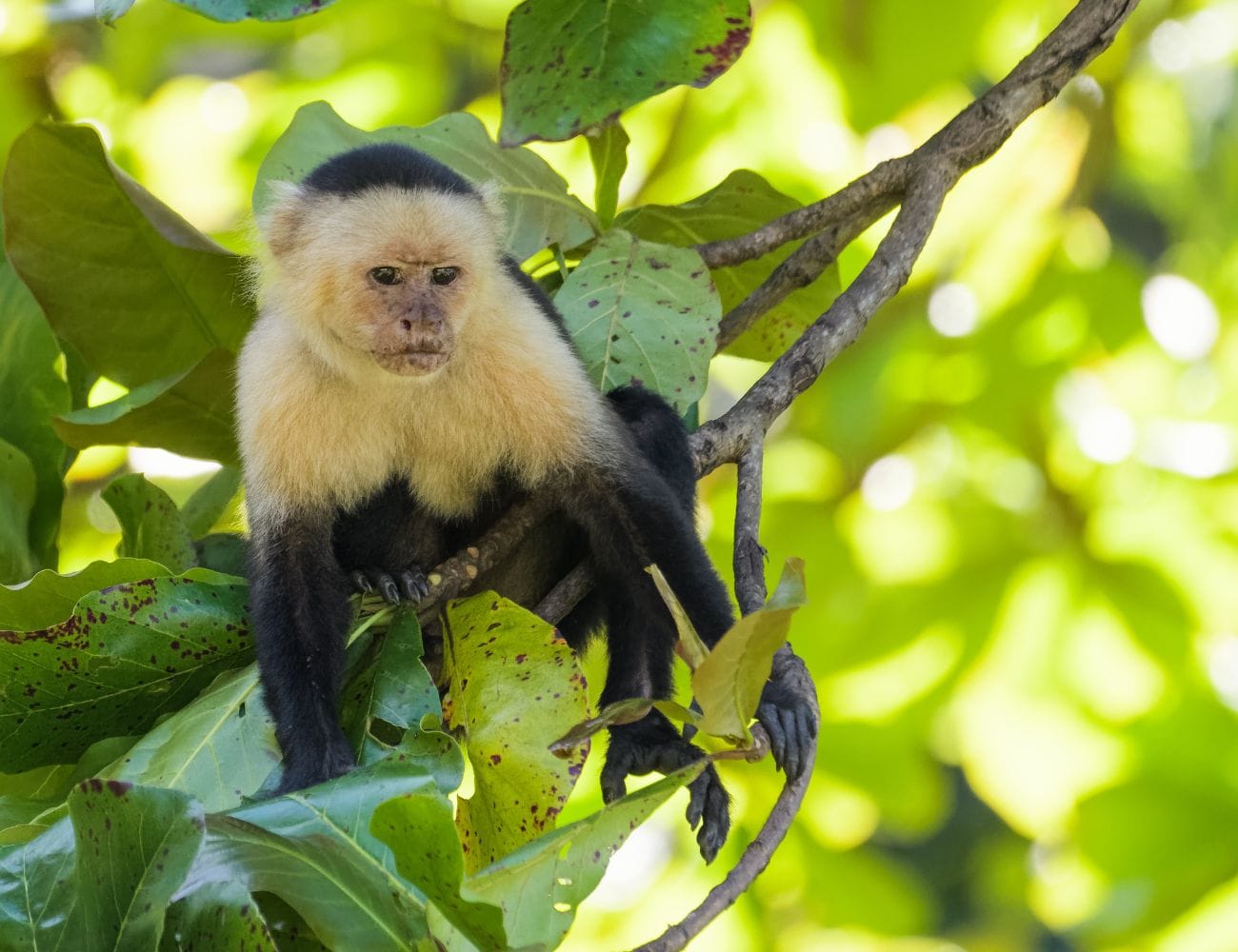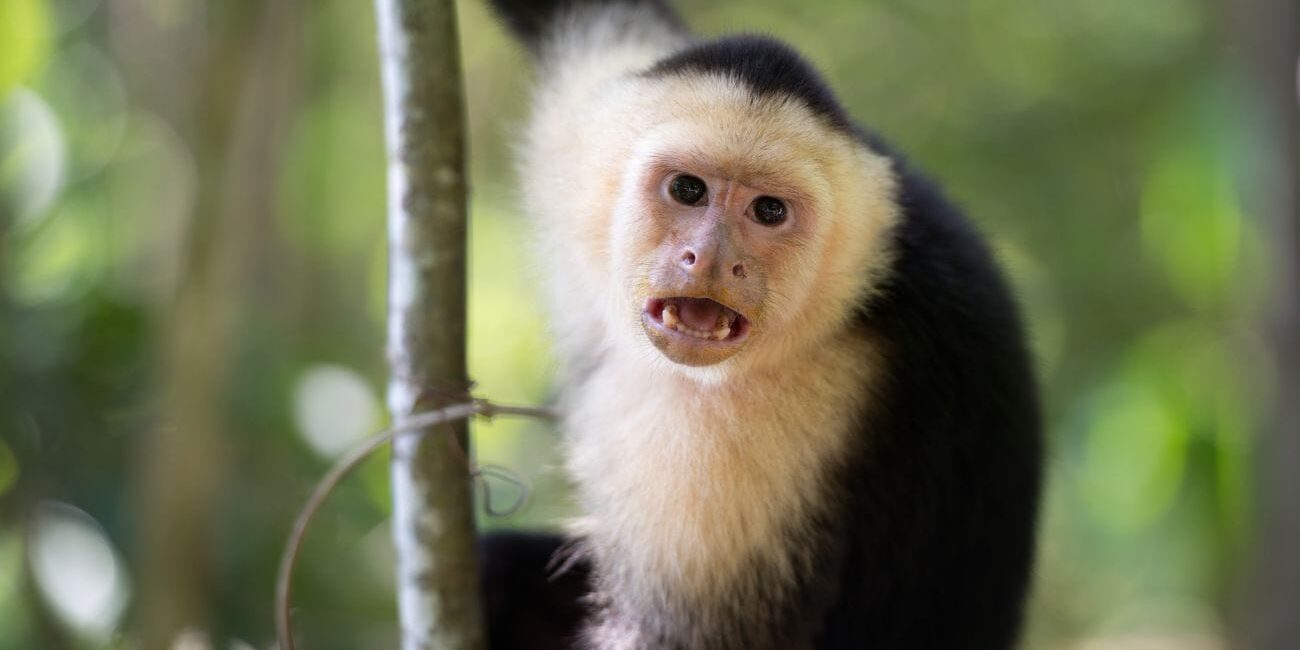Monkey Feeding tours in Costa Rica were very popular in the old days before a real consciousness arrived on how harmful they are for the vulnerable monkey populations and how risky for our visitors that do not realize these informal places are not zoos, or a theme park and monkeys are wild and dangerous.

For years, tourists have flocked to specific locations in Costa Rica, drawn by the allure of interacting with monkeys that have become accustomed to human presence. These encounters often involve feeding the animals, creating an illusion of connection and intimacy. However, beneath this surface charm lies a troubling reality that raises serious ethical and ecological concerns.
The Legal Landscape
In Costa Rica, the practice of feeding monkeys is not just frowned upon; it is officially illegal. This legislation stems from a deep understanding of the harmful effects such activities can have on wildlife and the delicate balance of the ecosystem. When monkeys are fed by humans, they lose their natural foraging instincts, becoming increasingly reliant on artificial food sources. This dependency can lead to significant health issues for the monkeys, including aggression and disease, as their diets become unbalanced and their social behaviors are disrupted.
Risks to Tourists and Wildlife
The consequences extend beyond the animals themselves. Tourists visiting these feeding sites are at risk of bites and scratches from monkeys, which can lead to severe bacterial infections and other serious health problems. The close proximity to these wild animals, combined with their unpredictable nature, poses a danger that many do not fully comprehend until it is too late.
 At Giotours, we have recognized the ethical implications of supporting such tours. In the past, we used to stop at locations where monkeys were fed, but as awareness grew and the law was enacted, we ceased these practices. The places we once visited have disappeared, but they were better managed than the current feeding sites, which often lack the necessary safety measures to protect both the monkeys and the tourists.
At Giotours, we have recognized the ethical implications of supporting such tours. In the past, we used to stop at locations where monkeys were fed, but as awareness grew and the law was enacted, we ceased these practices. The places we once visited have disappeared, but they were better managed than the current feeding sites, which often lack the necessary safety measures to protect both the monkeys and the tourists.
The Human Element
Many of these feeding sites are run by families who have turned to this practice as a means of income, placing them in a precarious position. They risk legal repercussions that could lead to losing their homes or facing severe penalties due to potential lawsuits from tourists who may suffer injuries from monkey bites. This cycle of exploitation not only harms the monkeys but also jeopardizes the livelihoods of those who depend on tourism.
Advocating for Responsible Tourism
Instead of participating in these harmful practices, Giotours advocates for responsible tourism that respects wildlife and their natural habitats. In Costa Rica, monkeys can be observed in their natural environments, free from human interference. The lush rainforests provide ample opportunities to see these magnificent creatures as they forage, play, and thrive in their ecosystems.
 By choosing to engage in ethical wildlife observation, tourists can enjoy the beauty of Costa Rica’s wildlife while contributing to conservation efforts. Education plays a crucial role in this shift; by raising awareness about the importance of protecting wildlife, we can foster a culture of respect and responsibility towards nature.
By choosing to engage in ethical wildlife observation, tourists can enjoy the beauty of Costa Rica’s wildlife while contributing to conservation efforts. Education plays a crucial role in this shift; by raising awareness about the importance of protecting wildlife, we can foster a culture of respect and responsibility towards nature.
Conclusion
In conclusion, Giotours firmly opposes monkey feeding tours in Costa Rica. We prioritize the health of the ecosystem, the well-being of the animals, and the safety of our passengers. By embracing responsible tourism, we can help ensure that Costa Rica’s wildlife remains healthy and vibrant for generations to come. Together, we can make a difference in the preservation of these incredible creatures and their natural habitats.
Join Us in Making a Difference
We invite you to join Giotours in promoting ethical wildlife observation and responsible tourism. Let’s work together to protect Costa Rica’s unique ecosystems and ensure that future generations can experience the beauty of our wildlife in its natural state.







